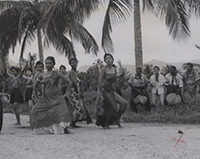Spring 2018 Class Schedule
| Course | Title | Instructor | Lecture | Discussion |
|---|---|---|---|---|
| HUM 220-0-20 | Health, Biomedicine, Culture, and Society | Steve Epstein | TuTh 9:30 – 10:50 am | |
HUM 220-0-20 Health, Biomedicine, Culture, and Society
HUM 220-0-20: Health, Biomedicine, Culture, and Society Fulfills Distro 3 (Social and Behavioral Sciences), Distro 5 (Ethics and Values), or Interdisciplinary Distro Present-day medicine and health care are flashpoints for a bewildering array of controversies--about whose interests the health care system should serve and how it should be organized; about the trustworthiness of the medical knowledge we rely on when we are confronted with the threat of illness; about the politics and ethics of biomedical research; about whether health care can be made affordable; about how the benefits of good health can be shared equitably across lines of social class, race, and gender; and about the proper roles of health professionals, scientists, patients, activists, and the state in establishing medical, political, and ethical priorities. By providing a broad introduction to the domain of health and biomedicine, this course will take up such controversies as matters of concern to all. We will analyze the cultural meanings associated with health and illness; the political controversies surrounding health care, medical knowledge production, and medical decision-making; and the structure of the social institutions that comprise the health care industry. We will examine many problems with the current state of health and health care in the United States, and we will also consider potential solutions. | ||||
Bio coming soon | ||||
| HUM 370-4-20 | Dance and History: Archives, Performance, and Memory | Elizabeth Schwall | MW 9:30 – 10:50 am | |
HUM 370-4-20 Dance and History: Archives, Performance, and Memory
HUM 370-4-20: Dance and History: Archives, Performance, and Memory Fulfills Distro 4 (Historical Studies) This seminar examines recent scholarship from Dance Studies, Performance Studies, and History to think about methods for studying performative events of the past and their traces. We discuss the possibilities and limitations of archives, the place of performance and memory in history writing, and feminist and queer studies perspectives on writing about bodies historically. Though focused particularly on dance, we also reflect on what cultural production more broadly can tell us about historical changes. By juxtaposing dance and history, as methods and subjects, we ask what does dance teach us about history and what does history teach us about dance? | ||||
Bio coming soon | ||||
| HUM 370-4-21 | Red Power: Indigenous Resistance to U.S. Colonialism, 1887-Present | Doug Kiel | MW 3:30 - 4:50 pm | |
HUM 370-4-21 Red Power: Indigenous Resistance to U.S. Colonialism, 1887-Present
HUM 370-4-21: Red Power: Indigenous Resistance in the U.S. and Canada, 1887-Present Fulfills Distro 4 (Historical Studies) In 2016, thousands of Indigenous water protectors and their non-Native allies camped at the Standing Rock Indian Reservation in an effort to block the construction of the Dakota Access Pipeline. That movement is part of a long history of Native activism. In this course, we will examine the individual and collective ways in which Indigenous people have resisted U.S. colonial domination since 1887. Most of the course will focus on the contiguous United States, but we will also turn our attention to Alaska, Hawaii, and the U.S. territories. This course will highlight religious movements, inter-tribal organizations, key intellectual figures, student movements, armed standoffs, non-violent protest, and a variety of visions for Indigenous community self-determination. | ||||
Bio coming soon | ||||
| HUM 370-5-20 | Dietary Decolonization | Hi`ilei Julia Hobart | TTh 9:30 - 10:50 am | |
HUM 370-5-20 Dietary Decolonization
Fulfills Distro 5 (Ethics and Values) In response to the negative social effects of globalization and industrialization on the contemporary food system, there has developed increased attention to questions of sustainability, food justice, and food sovereignty. While such concepts are useful for thinking about liberatory food futures more generally, they often draw upon foundational Indigenous concepts without directly naming them as such. This course, then, focuses on new discourses about food sovereignty by highlighting (rather than obscuring) the linkages between decolonial or sovereign food futures and histories of erasure and dispossession of Native peoples. Taking an interdisciplinary approach, course readings draw from the fields of Food Studies, Indigenous Studies, and Pacific Island Studies in the form of academic articles, cookbooks, short film, and poetry. Throughout, we will question the potentialities of food sovereignty within the settler state, whether dietary decolonization is possible in the so-called age of the Anthropocene, and the limits of working within and against today’s legacies of the colonial food system. | ||||
Bio coming soon | ||||
| HUM 370-6-20 | American Environmental Literature | Sarah Dimick | TTh 12:30 - 1:50 pm | |
HUM 370-6-20 American Environmental Literature
Fulfills Distro 6 (Literature and Fine Arts) In this course, we will explore what Lawrence Buell terms "the environmental imagination." Through reading, conversation, and written reflection, we will pursue a series of questions: How have American writers imagined and depicted wilderness, toxicity, and interconnection? What are the political and social consequences of their visions? How have their portrayals of the environment influenced how we use and value it? Ranging from canonical American nature writing to the literature of nuclear fallout, from poems about urban gardening to stories of communities weathering a warming world, we will pay particular attention to the way literary forms both encapsulate and reveal environmental change. Throughout this course, we will also consider the relationship between environmental writing and activism, reflecting on literature's unique capacities to expose environmental risks and envision a variety of environmental futures. | ||||
Bio coming soon | ||||
| HUM 370-6-21 | Work and Wuk: Caribbean Literary and Visual Cultures | Kaneesha Parsard | MW 2:00 - 3:20 pm | |
HUM 370-6-21 Work and Wuk: Caribbean Literary and Visual Cultures
HUM 370-6-21:Work and Wuk: Caribbean Literary and Visual Cultures Fulfills Distro 6 (Literature and Fine Arts) While tourist boards and hotel companies promote the Caribbean as a paradise of "sun, sex, and gold," what lies beyond this imaginary? This seminar explores literature and visual arts in the English-speaking Caribbean through the lenses of labor and gender and sexuality. In "Work and 'Wuk'," we will begin by examining narratives written by enslaved African women in the Caribbean. Then, we will turn to short stories, mixed-media works, and other literary and visual works by Caribbean women and gender and sexual minorities that represent major historical events: labor migration from Asia to the Caribbean, working-class movements, decolonization, and migration of Caribbean peoples to North America and Great Britain. Throughout, we will gain an understanding of how these Caribbean writers and artists have developed homegrown ways of seeing the region. | ||||
Bio coming soon | ||||
| HUM 370-6-22 | Shakespeare: The Whole Journey | Peter Erickson | TTh 12:30 - 1:50 pm | |
HUM 370-6-22 Shakespeare: The Whole Journey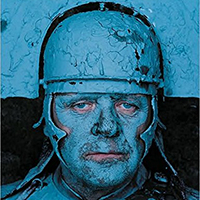
HUM 370-6-22: Shakespeare: The Whole Journey Fulfills Distro 6 (Literature and Fine Arts) The 20th century British poet and literary critic T. S. Eliot wrote that one "must know all of Shakespeare's work in order to know any of it." This course takes a journey along the whole of Shakespeare's plays that will enable us to ask: what do we learn when we pursue this comprehensive perspective? As Eliot puts it, "The standard set by Shakespeare is that of a continuous development from first to last" that ultimately becomes a display of Shakespeare's "power of development." In various ways we will consider what generates this power and what role different genres at different moments may play in activating this ongoing process. What stories do we see when we imagine the Shakespeare corpus as incremental narratives? How does Shakespeare's use of generic form change over time? How does the overall sequence of these changes create strikingly different endings and outcomes? | ||||
Bio coming soon | ||||


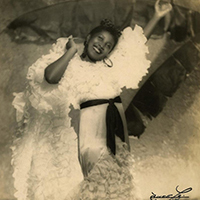
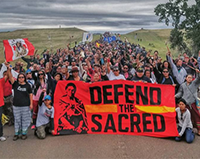
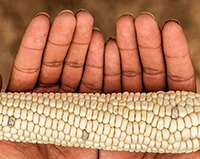 HUM 370-5-20:
HUM 370-5-20: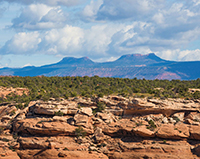 HUM 370-6-20:AmericanEnvironmental Literature
HUM 370-6-20:AmericanEnvironmental Literature